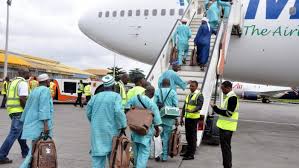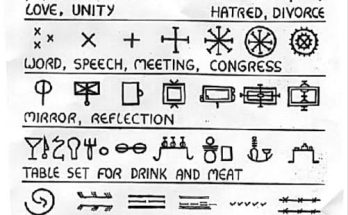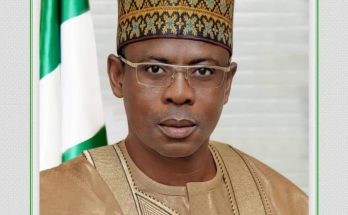Basically, Hajj is a religious rite but the journey to Saudi Arabia now transcends just pilgrimage to the Holy Land. At once, Hajj enhances trade, cements socio-cultural ties and strengthens diplomacy between countries. In Nigeria, the annual journey is the biggest human traffic within one month, cutting across various demographics and socio-economic strata.
Significantly, Muslims have been going on pilgrimage since the 11th Century. However, the journey started as solo missions, where a group of people, armed with faith and little geography, hit the road either on foot or horse backs and headed East towards Makkah. The pilgrims, according to historical accounts, trekked or mounted horses to the Borno general area, crossed over to Chad and Sudan, as they pitched camps along the way.
At Sudan, the pilgrims stayed for a little longer, engaged in farming and other menial jobs to augment their provisions. Afterwards, they moved to Egypt for the final leg of the journey by crossing the Red sea. Before long, they would arrive at their destinations, perform their pilgrimages and return home via the same route. Naturally, the journey took several years and it was beset with all manner of hazards. Above all, the pilgrims were at the mercy of marauders and feuding militias. Regardless, the number of pilgrims kept multiplying and the risk to lives and property increased with more sophistication and derring-do.
However, by around 1906, there was a remarkable improvement as motorised trucks were introduced for Hajj. In 1936, Alhaji Ibrahim Ringim, a Kano-based business mogul, bought a light truck for the journey to Saudi Arabia. In 1944, Alhaji Muhammadu Nagoda had established a fleet of Trucks for that purpose. However, the first fully organizied Hajj journey by road occurred in 1948, when Ringim, Nagoda and Kassim provided lorries for the long trip to the Sudan, before proceeding to Saudi Arabia. At that time, the journey lasted six months and each pilgrim was charged 20 pounds.
Subsequently, Alhaji Mahmud Dantata, along with Alhaji Haruna Kassim and Alhaji Ibrahim Musa Gashash, established the West African Pilgrims Association (WAPA), to facilitate pilgrimage by air. With the approval of Colonial authorities, the West African Airways Corporation (WAAC) aircraft conveyed pilgrims to Saudi Arabia. Indeed, airlift of pilgrims to the Holy Land went on side-by-side with Hajj by road throughout the 1950s.
Significantly, direct government involvement in Hajj affairs began in 1953, when Alhaji Abubakar Imam, a House of Representatives member, tabled a motion for the establishment of the ‘Nigeria Office’ in Jeddah. However, 12 years later, the Northern Nigerian Regional Government set up its first Pilgrims Welfare Board in 1965. Broadly, it collected Hajj fares, arranged for the issuance of passports, collected and issued tickets, obtained visas, and arranged for vaccination. In 1967, when 12 states were created, most of them set up State Pilgrims Welfare Boards to carry out the same functions. At the centre, the Federal Government created the Nigerian Pilgrims Commission, a section under the Ministry of External Affairs, to serve as the link among the State Boards.
From going on foot or on horse backs, to going to Saudi Arabia by road, as well as airlifting pilgrims by private businessmen, Hajj has no doubt improved from solo missions that they were. In addition, the risks of travelling to the Holy Land have greatly reduced, with the involvement of state and federal governments. Now, stories of unscrupulous businessmen who collected peoples money and abandoned them are few and far between. However, new challenges have been cropping up in Hajj management.
In 1990, the federal government took steps to cover the lacunae, by repealing the Nigerian Pilgrims Commission(NPC) Act. Indeed, the National Hajj Commission of Nigeria(NAHCON) replaced the NPC and the former, as conceptualised, is to ensure a hitch-free Hajj exercise. Briefly, NAHCON is saddled with licensing, regulating, supervising and performing oversight on all Hajj and Umrah-related organisations. Besides, it is responsible for the accommodation, transportation and other Umrah and Hajj-related services in Saudi Arabia. Indeed, its mandate is omnibus as it covers the entire gamut of Hajj and Umrah activities.
Specifically, in the last 15 years, NAHCON’s intervention has led to improved airlift of pilgrims, better feeding and accommodation in Madina. Likewise, it gives a minimum benchmark for catering services and accommodation for state Pilgrims Welfare Agencies. Now, pilgrims are accommodated close to the Haram or Grand Mosque at the barest costs.
Expectedly, in spite of its versality, challenges still abound in the Hajj exercise as new ones come up and old ones are solved. NAHCON, for this reason, has come under a barrage of attacks as individuals, groups and public office holders are calling for its scrapping. In fact, Senator Bala Mohammed, Bauchi State Governor, as well as Governor Umaru Bago of Niger State, went for the commission’s juggler over alleged failures in managing this year’s Hajj operations. According to Bago, states and the private sector should handle Hajj operations. Likewise, the Bauchi State Governor spoke in the same vein and both promised to lobby their colleagues to ‘’break NAHCON’s monopoly.’’
Significantly, no state in Nigeria is beyond reproach and all the states, irrespective of geopolitical zones, will come up short when critically assed. However, it will be unfair to use such lapses, as Bago and Mohammed are suggesting, to call for their scrapping or to diminish their services to their indigenes. Right now, most states are not paying the N18, 000 minimum wage. Some states are being owed salary arears and pensioners have not been paid their stipends for years. Should these defaulting states be scrapped for this gross abdication of duty? Agreed, NAHCON may not have solved all Hajj and Umra-related problems but every fair-minded critic will agree that pilgrimage has improved in the last 20 years. So, calling for abolition or decentralisation of NAHCON’s activities, owing to alleged lapse, will tantamount throwing the baby and the bathwater.
Indeed, the suggestion is Nigeria’s simplistic way of solving problems, which amounts to creating new ones in the long run. For example, agencies like the Federal Road Safety Corps(FRSC), Nigeria Security and Civil Defence Corps, as well as Directorate of Road Traffic and Safety, were created to make up for the inadequacies of the Nigerian Police. Willy-nilly, their creation brought new problems instead of strengthening the police and growing its numbers. Bottomline, Governors Bago and Bala Mohammed want to create jobs for their numerous supporters at the state level—their agitation has little to do with improving Hajj exercise.
Abdullahi Bayero,
Abuja




